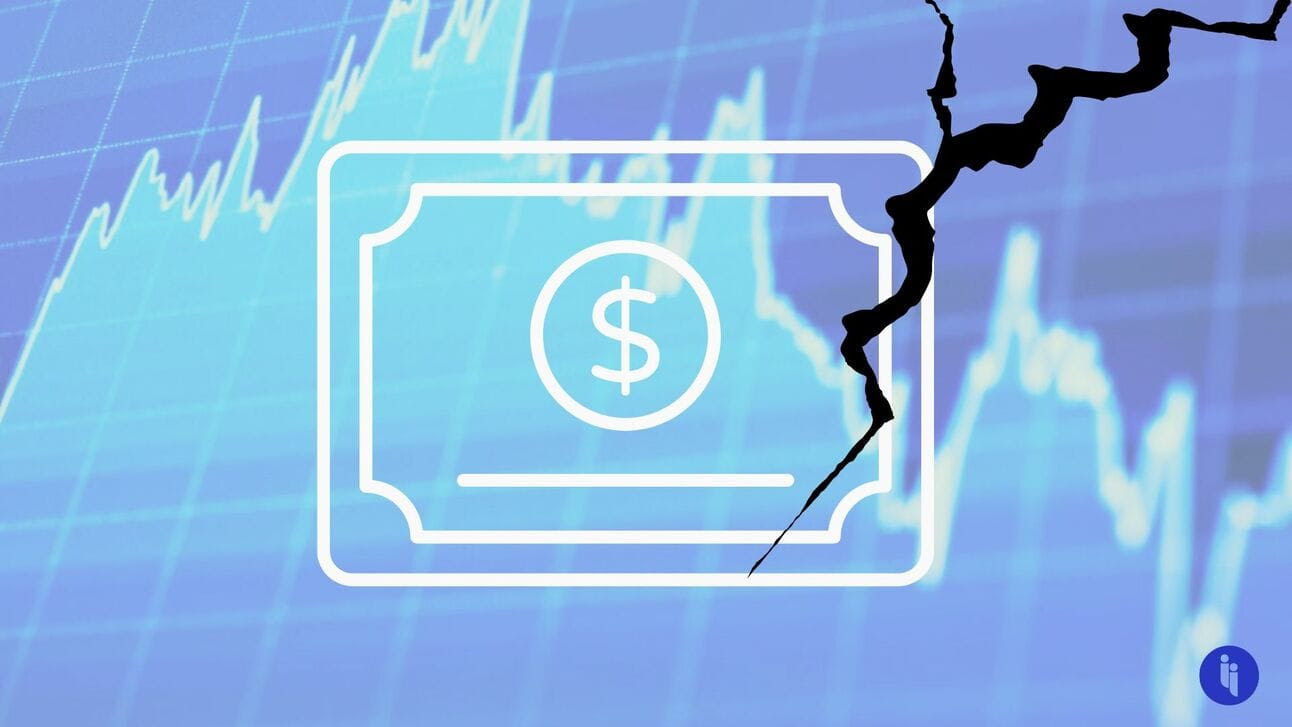If you imagine New York on any given day, journalists in Midtown are feverishly scribbling the scathing remarks of an ambassador at the UN Security Council. Travel a little farther south to Wall Street and traders are feverishly fixed to their Bloomberg terminals.
But there’s a world in which these two collide: the bond market. While journalists at the UN might be writing about Israel’s war with Hamas, Wall Street bankers are watching the country issue record government debt to finance it.
And those two worlds are colliding more and more.
Stay on top of your world from inside your inbox.
Subscribe for free today and receive way much more insights.
Trusted by 151,000+ subscribers
No spam. No noise. Unsubscribe any time.
You see, governments worldwide are knee-deep in debt. If we’re being precise, the waterline is now maybe more around the armpits, depending where you are.
As governments take on more debt (by selling bonds), their yields (think interest rates) can rise higher. And in 2025, higher they are — US treasuries? Almost 5% (10Y). British gilts? Pushing their highest since 2008. German bunds? At a six-month high. That all means costlier borrowing — and tougher choices — for governments.
So… here are three quick ways these worlds are now colliding —
- (Geo)politics
As Trump 2.0 ponders whether or how to continue US support for Ukraine’s self-defence against Russia, European capitals are still pledging their solidarity. But those pledges are rippling across capitals in complex ways:
- Germany’s Scholz fired his finance minister, for example, over a disagreement on the need to ease the country’s debt brake, with the chancellor now fighting an uphill battle to retain his own post at next month’s elections.
- Ditto next door in France, where disputes over spending cuts collapsed France’s last government in record time.
So as populists in both capitals push to ease taxes and protect spending programs (though cut Ukraine aid), bond investors are getting a little uneasy about government finances, and charging them more to borrow — and that just exacerbates the underlying politics, while complicating government efforts to throw their weight around abroad.
- Enter investors
For years, central banks have prioritised growth by cushioning bond markets and hoovering up their own government debt through quantitative easing — China just dipped back into its own bond market again last year, for example. But since around 2022, many central bankers have tapped the bond brakes to tame inflation — that leaves investors to pick up the slack (fun fact: Japan is a top buyer of US bonds).
But private investors tend to demand higher yields, and are also attracted to safe-havens right now — and that risks sucking more funds into the US, and out of…
- Emerging markets
Every case is unique, of course. El Salvador’s bonds have been a top-performer, for example, as President Bukele has crushed organised crime, stabilised his finances, and seen the value of his Bitcoin holdings soar — so his lenders have done well.
But there’s a sense that conditions might get tougher for emerging markets ahead — Trump 2.0 tariffs might not only disrupt top trade partners like Mexico, Canada, and China, but also commodity exporters that help fuel China’s manufacturing machine. That’s why several emerging players (like the Saudis, Mexico, Chile, and Indonesia) are right now rushing to lock in their next borrowing before Trump’s inauguration next week.
But if US rates stay higher for longer (a real prospect after Friday’s blowout jobs report), emerging market finances could quickly get tricky, with implications for stability. And while it might not matter to the average New Yorker what happens in (say) Bolivia, costs can filter home via an IMF bailout, or via a rival like Beijing or Moscow filling the void.
So, next time a capital wobbles, that journalist in Midtown might just be drafting their question for the ambassador while texting their Wall Street chum about the country’s debt.
INTRIGUE’S TAKE
The big exception to all this, as ever, is China — it’s the only major bond market where bond yields are headed south. As we wrote on Friday, that’s partly because China is facing deflation, meaning lower yields can still attract haven-seeking investors. Meanwhile, higher US yields could suggest investors are getting jittery about US finances and/or bracing for more inflation (and higher rates), which brings us to Trump 2.0.
Maybe his tariffs, deregulation, tax-cuts, and migration plans will bring more inflation. Or maybe his cost-cutting pledges will cool it. Maybe it’ll be a mix. Or maybe, just maybe, yields are simply reverting to ‘normal’ after years of Covid-linked cheap money.
Whatever it is, the world (like our paragraph above) is dripping with uncertainty, and bond markets might finally be pricing that in.
Also worth noting:
- The latest US jobs report came out on Friday, exceeding growth expectations and raising doubts around the Fed’s rate cuts this year.
- The next US inflation (CPI) numbers are due out tomorrow (Wednesday).
- Trump’s nominee for treasury secretary (Wall St figure Scott Bessent) is due to face his senate confirmation hearing on Thursday.





